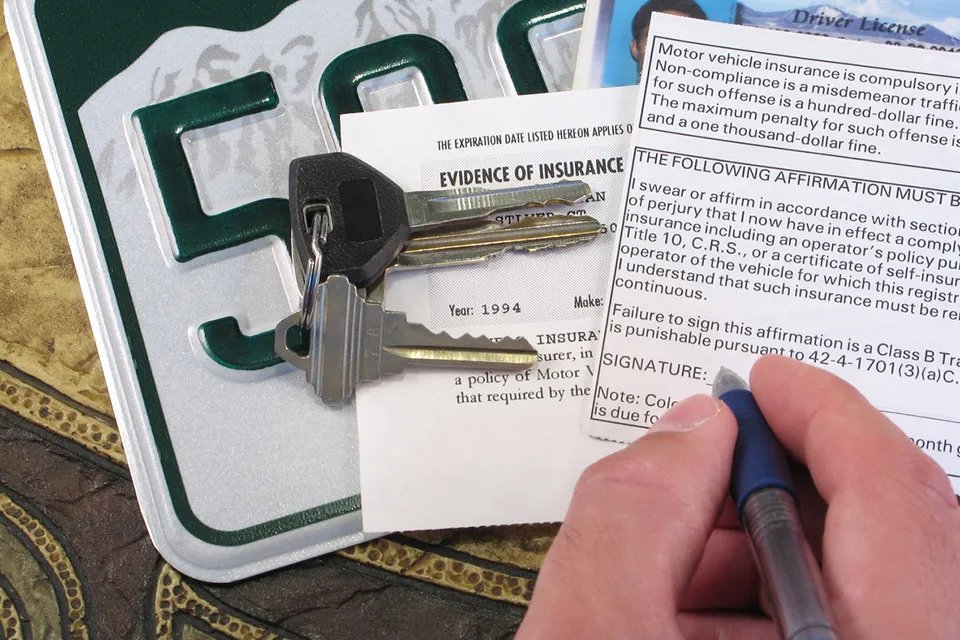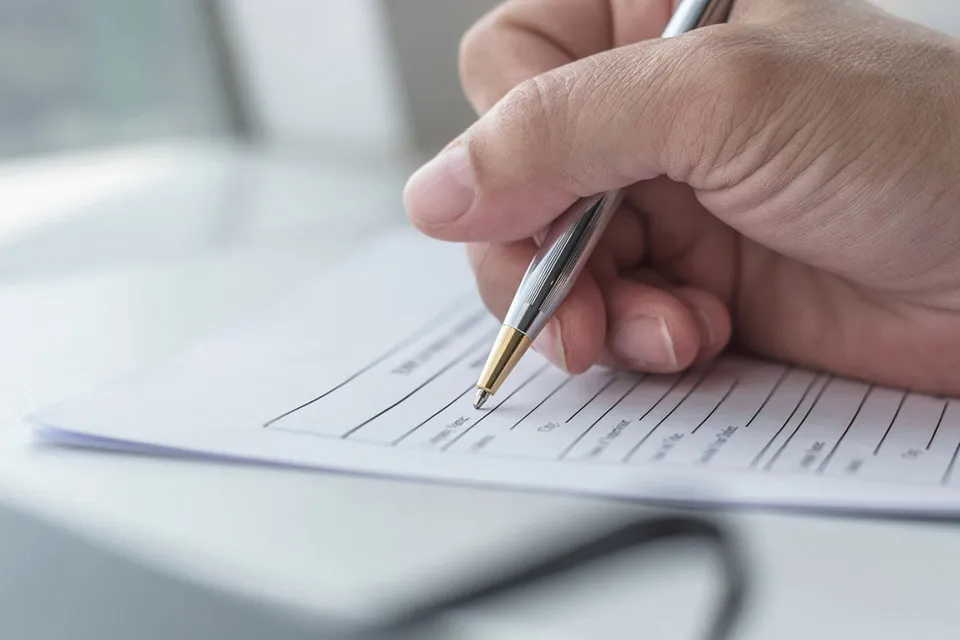Can You Register a Car Without a License?

Registering an automobile on a public road is the first step in lawfully using it. One question that often crosses people's minds may be: Do you need a license to register a car? The quick answer to this question is yes, but there are certain subtleties that merit further discussion. Here at GoodCar, we want to provide you with the answers to those subtleties – let's dive in!
What is a Vehicle Registration?
Registering a car is the process of officially recording your vehicle with the government, usually through the Department of Motor Vehicles (DMV) or a similar agency. This registration connects your car to you as the owner and ensures it's legally recognized on the road. During the registration, you’ll receive a unique license plate and registration number that must be displayed on your vehicle. To complete this process, you'll typically need to provide proof of ownership, insurance, and sometimes pass a vehicle inspection. It's a necessary step to make sure your car is legally allowed on public roads.
Do You Need a License to Register a Car?
You must present ownership documentation and proof of identity when registering an automobile. The most common way to prove your identity is with a driver's license, which also verifies that you are legally allowed to drive.
It is not possible to register a car without a license; you typically need to present a current driver's license. This is necessary so that the Department of Motor Vehicles (DMV) can make sure that the individual who is registering the car has the legal right to drive it. Before awarding a driver's license, the DMV may also require you to complete a driving test, ensuring that you possess the abilities and knowledge required to operate a car safely.
Exceptions to the Rule
While a driver's license is typically required to register a car, there are a few exceptions to this rule. Here are some scenarios where you may be able to register a car without a driver's license:
- Inheritance: You might be able to register a car in your name without a driver's license if you inherit it from a family member. You will nonetheless need to present ownership documentation and government-issued photo identification, such as a passport or birth certificate.
- Gift: If you receive a vehicle as a gift, you may be able to register the car without a driver's license. However, you will still need to provide proof of ownership and personal identification, such as a gift letter from the previous owner and a government-issued identification card.
- Non-Operational Vehicle: You might be eligible to register a car without a driver's license if you possess one that is being restored or is being used for parts but is not being driven on public roads. You will be required to show evidence of ownership and personal identity in this situation, but in most cases, you will not be required to show proof of insurance or pass a smog check.
- Business Vehicle: If you are registering a vehicle strictly for commercial use, such as a delivery van or work car, you might be permitted to do so without a driver's license. You must still present evidence of ownership, identity, and insurance, as well as any business-related permits or licenses that may be required.
- Handicap Placard: If you are applying for a handicap placard, you may be able to register a car without a driver's license. However, you will still need to provide proof of ownership and personal identification, as well as proof of disability.
It's crucial to remember that these exclusions are rare and may differ by state. Be sure to research the rules and laws in your state before attempting to register a car without a license.
Consequences To Register a Car
Without a License
Without a valid driver's license, registering an automobile can result in hefty penalties in many cases. Additionally, driving an unregistered vehicle is illegal and can lead to severe penalties, including fines, impoundment of the vehicle, and possible legal action. A valid driver's license is often necessary to register a car with the DMV. Without it your application will probably be turned down, and you might face fines or other consequences. Furthermore, it is against the law and may result in fines, penalties, and even criminal charges to operate a vehicle without a valid driver's license. Also, driving without a license might void your insurance policy, making you liable for any damage or injuries sustained in an accident.
What Else Do You Need For Car Registration?
In addition to a driver's license, there are several requirements that must be met to register a car. These requirements may vary by state, but here are some common ones:
- Proof of Ownership: You need to provide proof of ownership in order to register a vehicle. A bill of sale, title certificate, or registration certificate are examples of this.
- Personal Identification: You must present personal identity documentation, such as a driver's license, passport, or state identification card, in order to register a vehicle.
- Insurance: When registering an automobile, most states demand that you present evidence of insurance. By doing this, the state can be sure that you have the coverage you need in the case of an accident to pay for losses or injuries.
- Smog Inspection: Some states require a smog inspection before registering a car. This ensures that the vehicle meets emissions standards and is safe to operate on public roads.
- Fees: Registration fees, sales tax, and any necessary smog inspection fees are all costs involved in registering a vehicle.
When attempting to register a car, it's crucial to keep in mind that these criteria may differ by state. To avoid confusion, it's necessary to verify your state's unique regulations.
It's Always Best to Get Your Vehicle Registered to You

A valid driver's license is normally required for automobile registration as a form of personal identity and as proof of permission to drive. There are a few exceptions to this rule, although they are quite uncommon and could differ by state. Attempting to register a vehicle without a driver's license can frequently lead to serious fines, penalties, and other legal repercussions.
Although a driver's license is almost always necessary to register a car, it should be noted that this is not the only thing to take into account when choosing and maintaining a vehicle. There are other crucial actions you take to make sure your car is officially registered and insured. They frequently consist of identity documents, insurance, and any required smog checks. And though it is usually never a good idea to try to register a car without a license, it is crucial to make sure you have completed the entire set of necessary procedures and collected the required paperwork to effectively register your vehicle. If you have any further questions or concerns regarding the local car registration regulations, get in touch with your state's Department of Motor Vehicles.
FREE Vehicle Search
- Accidents
- Problem Checks
- Title Records
- Recalls
- Values
- Specs
-
InfoPay, Inc. (dba GoodCar) is an Approved NMVTIS Data Provider
-
-































